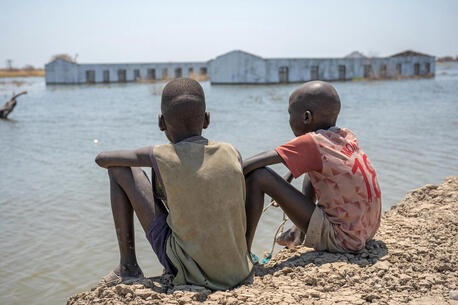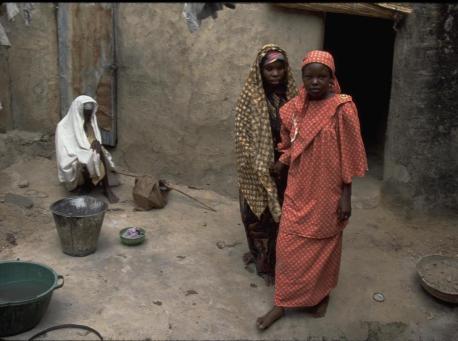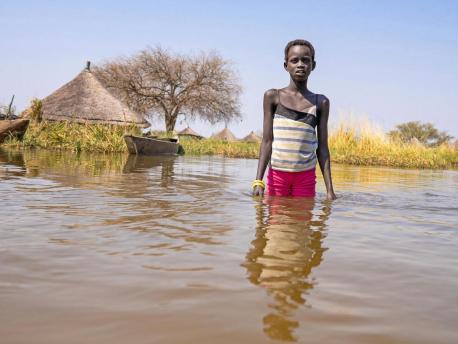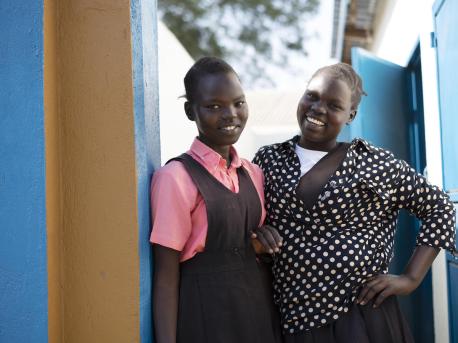
5 Ways Safe Water, Sanitation & Hygiene Change Children's Lives
"No water, no life," reads the sign near a newly rehabilitated borehole at Iluhum Primary School in Torit, South Sudan.
The borehole allows students to pump safe water for use during the school day. Before it was fixed, students had to walk more than a mile roundtrip to fetch water for drinking and cooking school meals. "A school needs a lot of water," said Adonga David, the school's head teacher. "The children had to spend their breaks getting water or bring water to school. Some of the children would go home for water and not come back; others would miss class.”
Only 40 percent of South Sudan's population has access to safe water and just 10 percent of households have access to improved sanitation. “When you deny someone their right to clean water, sanitation and hygiene, you are also denying them the right to health, a life, protection and dignity,” said Hamida Lasseko, UNICEF South Sudan Representative. “The foundation for a healthy and productive life as an adult is laid at a young age. Every time a child gets very sick from lack of WASH services, the foundation withers and some will not be fortunate enough to see adulthood. This is not acceptable, as it can be avoided.”
Below, five ways safe water improves children's lives and opens the door to a brighter future:
1. Health
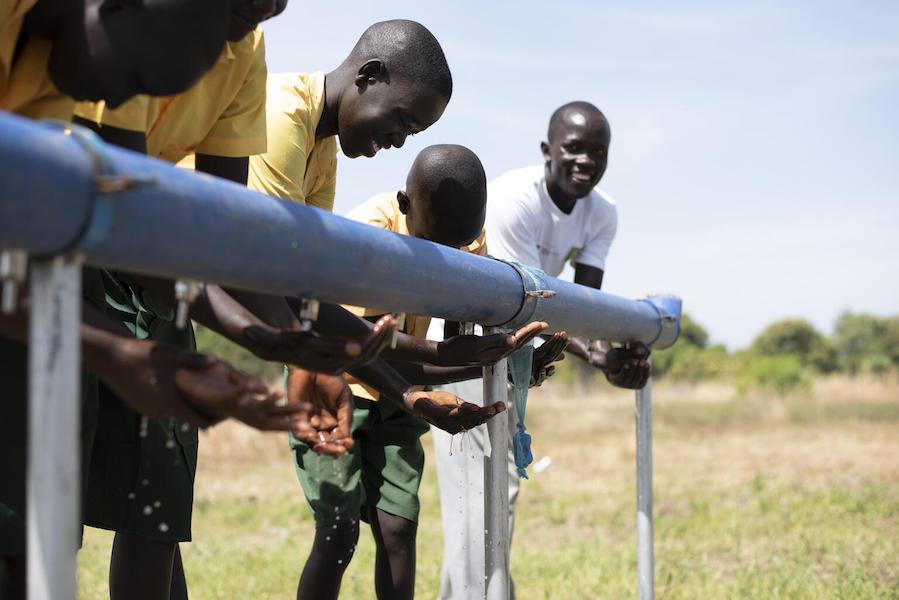
© UNICEF/UN0427996/Ryeng
To prevent the spread of disease, children need safe water to drink and to wash their hands properly, and reliable sanitation facilities. Dirty water and poor sanitation are the main contributors to acute watery diarrhea, one of the leading causes of child mortality in South Sudan.
"It's heartbreaking to see children run into school with smiles on their faces, but then there are no toilets for them, or the toilets that exist are unusable," says Andrea Suley, UNICEF Deputy Representative in South Sudan. Above, students and teacher Jonoka Akai (far right) wash their hands with water from the borehole outside Dumak Primary School in Torit.
2. Education
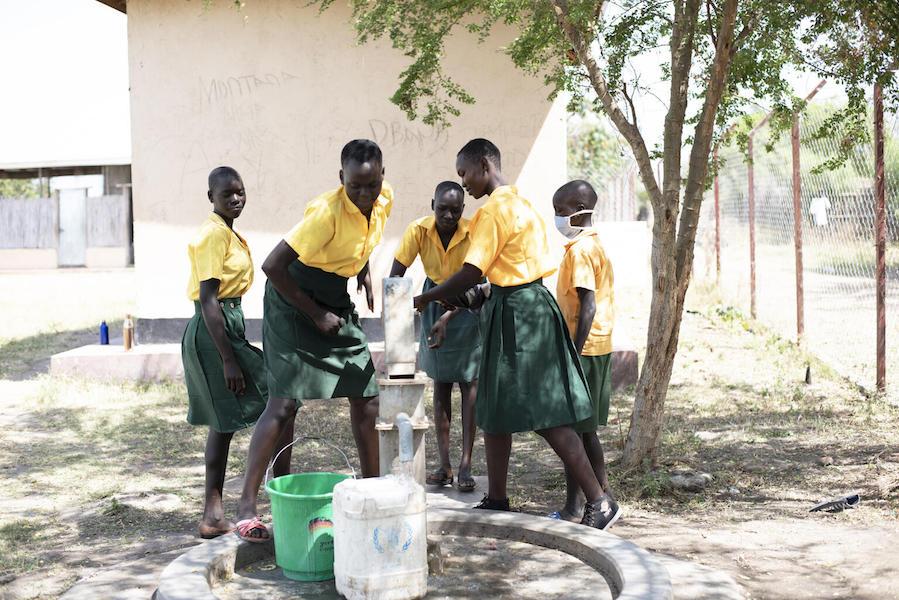
© UNICEF/UN0428009/Ryeng
The burden of collecting water typically falls on girls, especially among the older students. Time spent hauling water means less time spent learning n the classroom. Some schools buy water from water trucks to save students from having to fetch it, but the water available for purchase isn't necessarily treated for drinking.
UNICEF and partners site new boreholes near schools to benefit children specifically, but the boreholes are open to the entire community. Community members receive training in how to maintain the water sources. Above, Um Juma, 18, pumps water at Dumak Primary School.
3. Nutrition
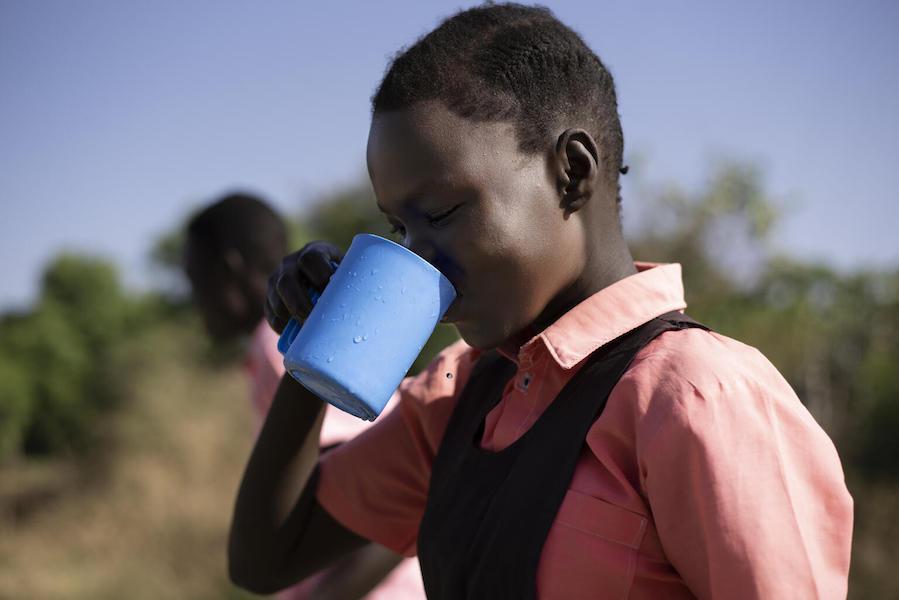
© UNICEF/UN0428066/Ryeng
It's easier for students to learn when they are fed and hydrated. When a school offers meals, students are more likely to enroll. School lunch is the only meal of the day for many students. It's hot all year round in South Sudan, so students also need water to drink during the school day. Above, Keziah, 14, drinks water from the borehole at AIC Nursery and Primary School in Torit.
4. Dignity
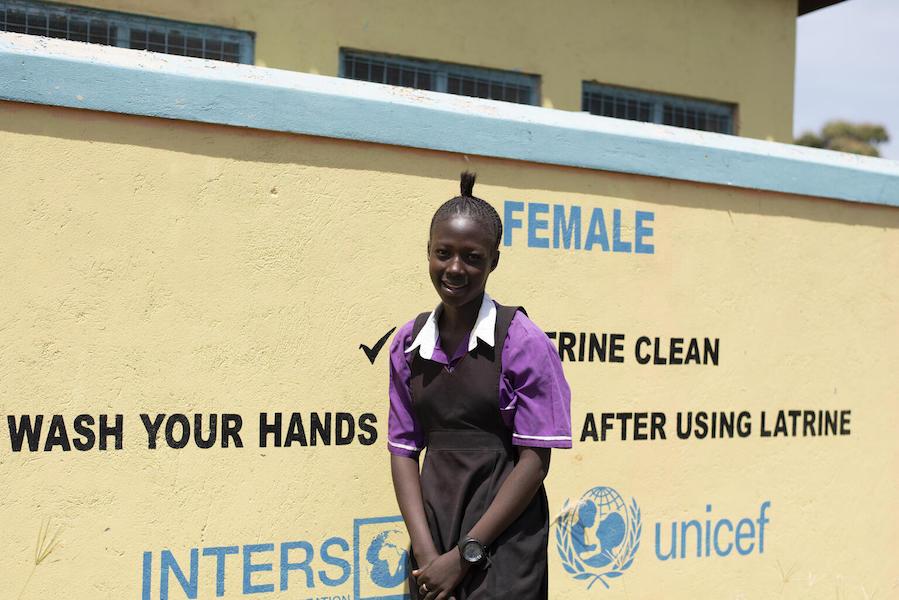
© UNICEF/UN0427993/Ryeng
For many girls, access to safe water and basic toilet facilities is the foundation for equality. When a school has clean and gender-separated toilets, girls don’t have to skip class when they have their period, missing up to a week of instruction per month. Those who fall behind in their studies are more likely to drop out and marry early.
UNICEF also provides girls with dignity kits containing menstrual supplies. “Before, the girls were not prepared and if a girl got her period, we would make do with a makeshift pad using some old clothes or something. Now they all have their own, and at school we keep a few extra just in case,” says Jonoka Akai, deputy head teacher at Dumak Primary School. Above, 16-year-old Jasmine Blessing stands outside the newly constructed latrine block for girls and women at Torit West Primary School.
5. Opportunity
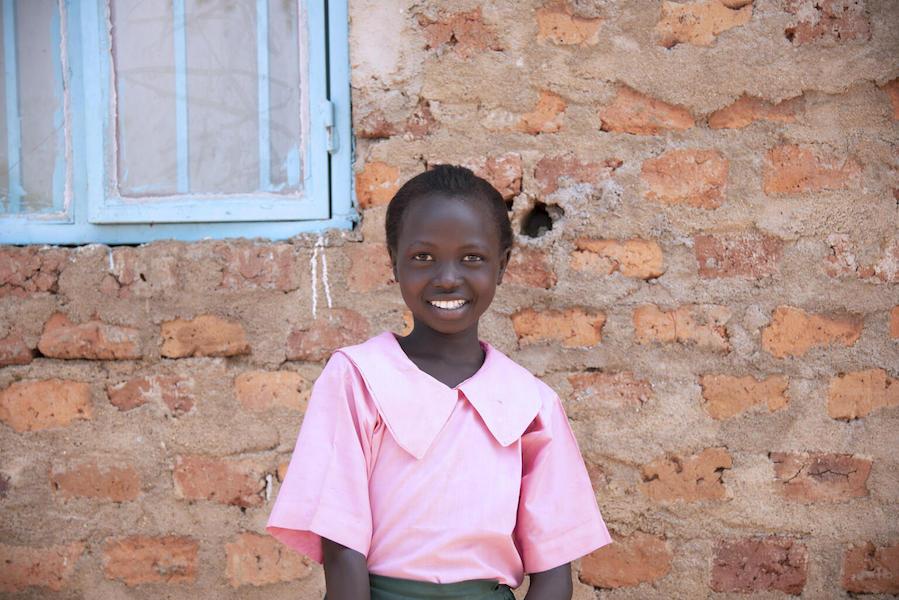
© UNICEF/UN0427965/Ryeng
Ten-year-old Sunday Lino, above, is a member of her school's hygiene club at Faith Ministry International Academy in Torit. Students meet to discuss the importance of handwashing to prevent the spread of COVID-19, the dangers of open defecation and how girls can manage menstruation. They share that information with fellow students — and take it home to teach their families. "We're calling out the adults when they're doing it wrong," one girl told UNICEF Communication Specialist Helene Sandbu Ryeng.
Information sharing is a challenge in South Sudan, where more than 60 languages are spoken and one-third of the population is illiterate. Using schools as hubs for distributing health and hygiene information lifts up the entire community.
"When children in South Sudan survive and do well in school, South Sudan as a country does better,” said Lasseko. “We get healthier, smarter and more confident children. This is important, as South Sudan needs a bright generation of children who can continue to develop the country and sustain peace. With all this considered, we all have a stake in WASH in schools becoming a priority.”
Over the past five years, UNICEF has established 402 boreholes and constructed and rehabilitated 321 latrines in schools across South Sudan. Still, only one-third of the nation's schools have access to water and most of the existing latrines in schools are not in a usable condition. It costs just $18,000 to drill a borehole which, if properly maintained, will last for years. The price to build one latrine block is $10,000; each school needs at least one block for boys and one for girls.
UNICEF works with partners in more than 100 countries to provide safe water and reliable sanitation and to promote basic hygiene practices in the world's most vulnerable communities. Please donate.
Top photo: On February 3, 2021, Keziah, 14, (left) and Elizah, 16, stand in front of a newly rehabilitated latrine at AIC Nursery and Primary School in Torit, South Sudan. The new latrine block also has a room girls can use to change their pads, so they don't have to skip school when they are menstruating. © UNICEF/UN0428060/Ryeng
